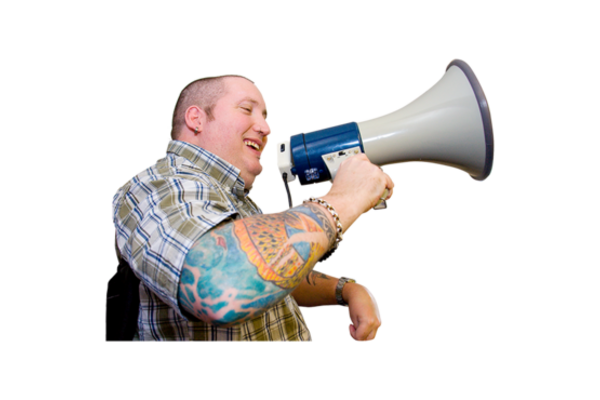Dear Member,
At Easy Health, the creation of accessible health content is our speciality. We can help and will give you a little tour of general guidelines and best design practices. All advice is informed by a diverse team that includes colleagues with lived experience of learning disability and autism.
So how do you make sure your next board meeting or patients' appointment is accessible and meaningful?
First and foremost, you need to prepare.
When planning an appointment or a meeting with a person with additional needs (learning disability, autism, dyslexia... ), some information need to be shared beforehand and as early as possible.
The reason is that the person may need help from the Job Coach, carer, family, friends or Support Worker to read it, discuss it or to help set up reminders.
Make sure you know (ask if you don’t):
- If people need communication support (like sign language interpreters or a room with an induction loop system for people who use hearing aids, documents in braille...).
- How people want to get the information (for example, do they use emails, phone calls, large prints letters...).
- Any reasonable adjustment the person needs to make the session accessible to them and therefore, meaningful.
Remember that everyone is different. Ask each person what they need to make a it work for them.
You need to communicate clearly and in a format the person you meet understands (this could be in easy read, audio or film, for example).
Communication needs to include:
- The date and time, so they have enough time to make themselves available.
- The location, so that they can plan travel and arrange transport.
- Include any accessible documents that clarifies what is going to happen during the visit.
For example, if you are preparing for an appointment with a patient, make sure you give them information about the reason why they are coming to see you. Feel free to use Easy Health to download any accessible health document you need for free. If you are inviting a colleague to a meeting, ensure the agenda is shared in advance, and all communication is accessible.
Just before the appointment
- Make sure you have accessible documents at hand to explain topics with simple words and clear visual support.
- Make sure the appointment is long enough to allow time for the person to process the information and ask questions.
- Send a reminder if needed.
During the meeting/ appointment
- Getting everyone to introduce themselves briefly (or be introduced and acknowledged, if they prefer to do it that way) is a good starting point. It may also help you assess communication skills if you are meeting someone for the first time.
- Give everyone a chance to speak (patients, as well as carers, or in a meeting, go around the table or the room for a brief introduction).
- Do not give too much information as it can be confusing. For example, only give the background information that will help people have their say.
- Summarise what was said and check it was understood.
- In a meeting, when working as a group make sure only one person talks at once. Use a microphone if possible.
- Make sure that the presenters know how to give an accessible presentation.
We can help!
If on your journey towards accessibility you realise you need more support, feel free to contact us.
We collaborate with colleagues with a lived experience of learning disability &/ or neurodiversity to offer the following services:
- free documents on a variety of health conditions accessible on our website: https://www.easyhealth.org.uk
- translation: standard health documents into easy read documents
- trainings for health and social care professionals on how to improve communication and support for people with disabilities &/ or autism
Please contact us for a chat, a quote, or a booking.
Kind regard
The Easy Health Team



